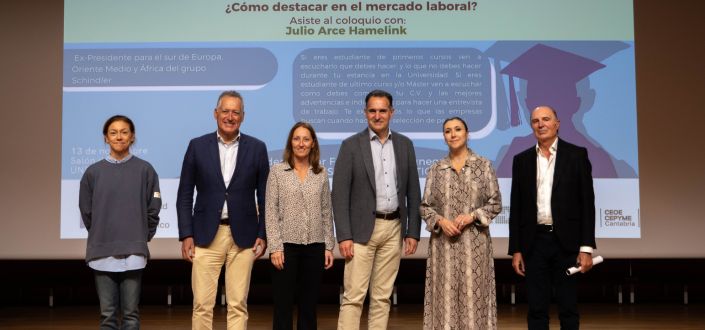The European Atlantic University (UNEATLANTICO) held a new session of the programme «And now what?» with the aim of guiding students and providing them with the necessary tools for successful entry into the world of work.
The session was attended by Julio Arce Hamelink, industrial engineer specialized in organization, executive of the Schindler Group and member of the Advisory Board of IED.
During his talk, Arce shared with the students his valuable career path and offered them a series of practical tips and strategies on the key measures they should implement when starting their process of integration into the world of work.
Arce highlighted the importance of continuing training after university. He explained that this process is fundamental for professional growth because it is at this stage that the acquired knowledge is consolidated and applied, which drives the effective development of a solid and differentiated professional profile.
Similarly, he expressed the importance of participation in extracurricular activities and how essential it is to be willing to take risks and responsibilities, because this allows you to gradually build a path into the professional world.
He also urged the students to be clear about their values, as in the world of work this makes it easier for the professional to stand firm in situations where they stumble. He also stressed that step by step knowledge and experience is gained, thus building in a staggered way a successful path, without despair or excessive ambition.
Finally, a question-and-answer session was held where the students expressed their doubts and concerns in a more specific way, thus obtaining guidance in a more specific way.
The programme «And now?» is carried out in cooperation with several entities: the Fundación Innovación y Desarrollo (FIDBAN), the Sociedad para el Desarrollo Regional de Cantabria (SODERCAN), the Centro Empresa Universitario (CEMU) and the CEO-CEPYME Cantabria,Reaffirming the commitment of the European Atlantic University to the integral training of its students, providing meeting spaces that allow direct contact between students and professionals.


